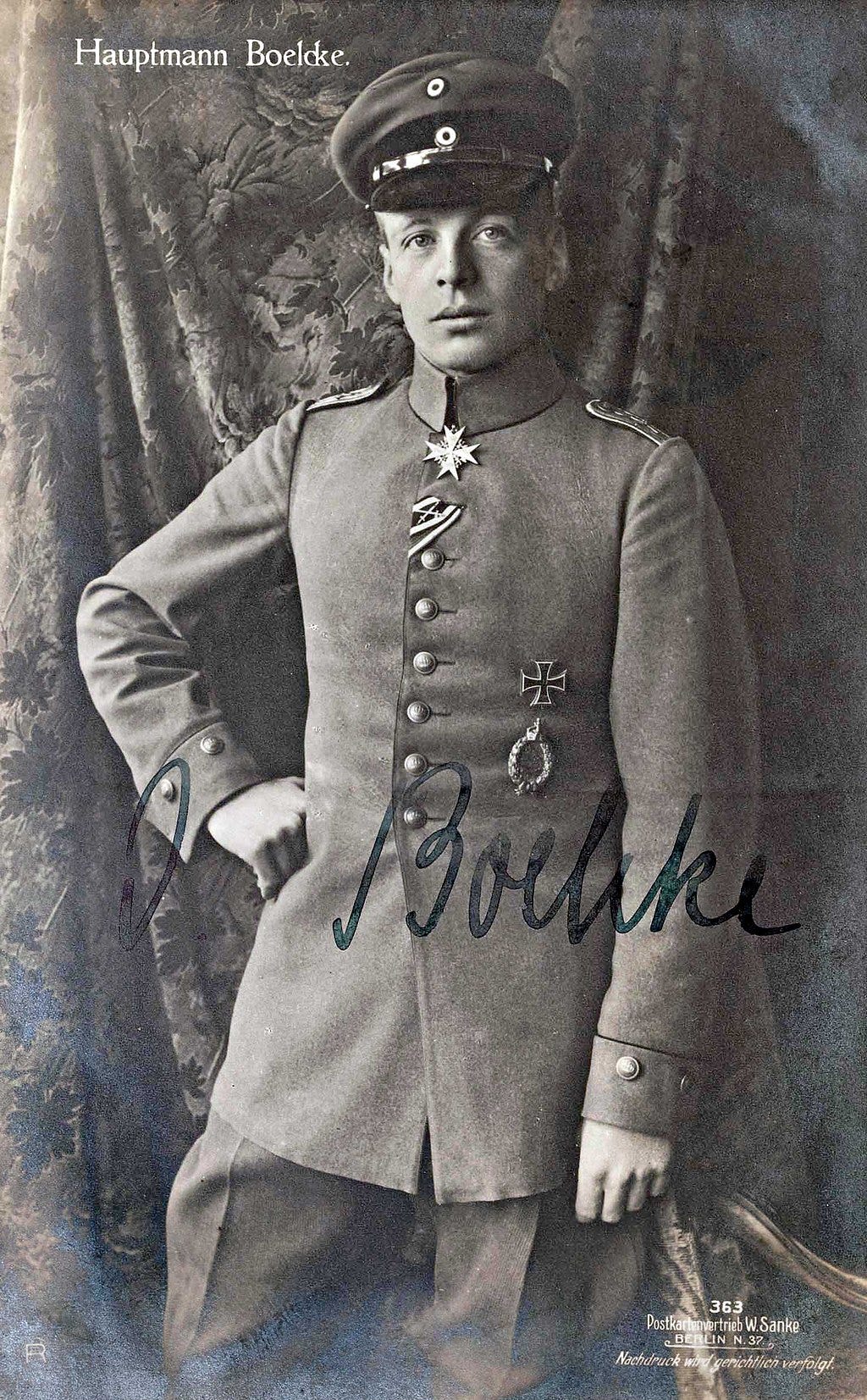Whereas the Royal Flying Corps frowned upon the promotion of the individual and advocated the idea of the Corps and her achievements as a unified team effort, Germany’s first aces found themselves part of a cult of celebrity almost instantly when the enemy aircraft began to fall.
Born in 1891, Oswald Boelcke was a likeable child. The son of a Dessau professor, he was friendly, open and a ‘good sort’ as far as his schoolmates were concerned. He always had the air of one would rather lead than be led, orchestrating all sorts of games and practical jokes at his grammar school. As he approached manhood, broad-shouldered and standing about 5’7’’, fair-haired with pale blue eyes, Boelcke couldn’t keep still. Despite asthmatic tendencies that were a lifelong result of whooping cough, he listed his favourite activities as rowing, swimming, diving, tennis, gymnastics and football. As he got older he was also introduced to skating, dancing and horse riding, all three of which he adored. At seventeen his father took him mountaineering. His first trip to the Austrian Alps instilled yet another passion and he grew to be a ‘skilled, fearless climber.’
With so many sporting interests, unsurprisingly Boelcke was never inclined to academia. With a small exception for the works of Homer he was always more interested in more modern subjects; history, maths and physics in particular. Almost all of his personal reading revolved around military subjects. The speeches he gave in his elocution lessons were telling too: “General Schornhurst and his Army Reforms,” “Count Zeppelin’s Life Before His Earliest Experiments In Aeronautics.” It is little wonder, with this reading material and an ardent Nationalist for a father, that he decided on a military career very early on. He had the cheek to write to the Kaiser directly to ask for a nomination for the cadet corps but his audacity paid off. The first his parents heard of his intentions was when a reply came from the Corps commander telling them that His Imperial and Royal Majesty Wilhelm II had indeed granted the request. The Professor had to pin his son down and insist that he finished his education first, but Oswald was free to pursue his chosen career in the spring of 1911.
Boelcke began his life as an aspirant by packing up his things and leaving Saxony for the other side of Germany. His mechanical inclinations led him to choose the field of wireless telegraphy and his first stop was Coblenz. In the autumn he relocated to the War Academy at Metz, which he found to be another pleasant location, with terraces along the banks of the Moselle and views of the surrounding countryside. Less pleasant was the workload. As of six in the morning he was kept busy studying for fourteen long hours. Aside from the workload he and the other pupils at the academy had to contend with the officious commandant of the school, who wasn’t regarded with one ounce of affection by the pupils. Nicknamed “The Owl,” Boelcke sent home colourful descriptions of him lurking the corridors daily, ‘in search of victims for slaughter.’ One batman, sent out to pick up a cello for his man one day, found himself stopped by the Owl on the grounds of carrying a large parcel and neglecting to put in on wheels. He meant the hand-car used for delivering mail, but was ‘simply wild but too flabbergasted to say a word’ when the inventive servant peddled past him with the instrument strapped to a bicycle. The whole Academy was 'killing themselves’.
Keep reading with a 7-day free trial
Subscribe to Alex Churchill’s HistoryStack to keep reading this post and get 7 days of free access to the full post archives.


